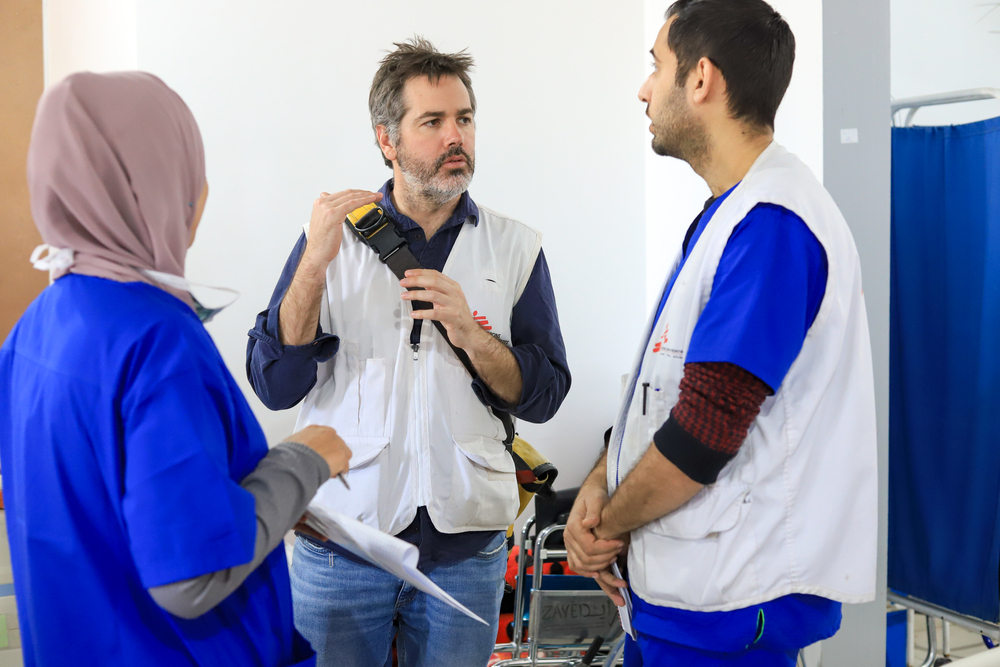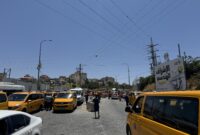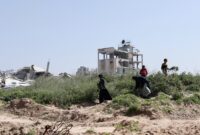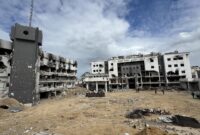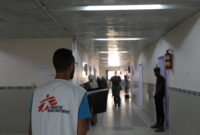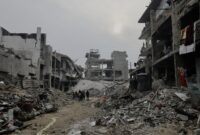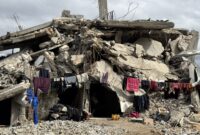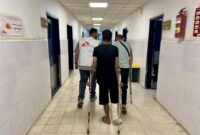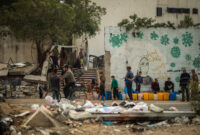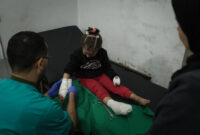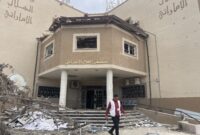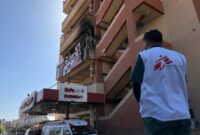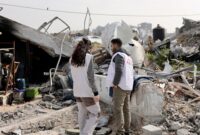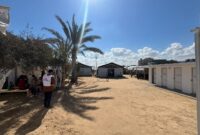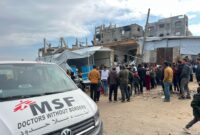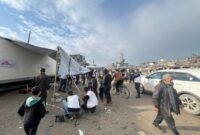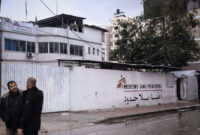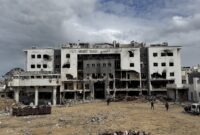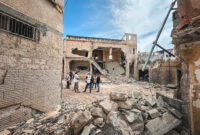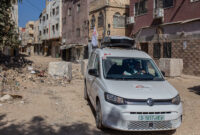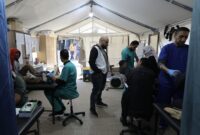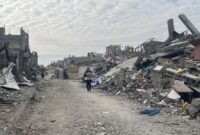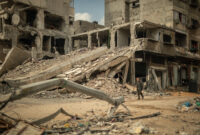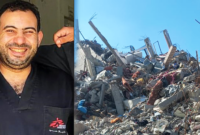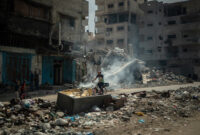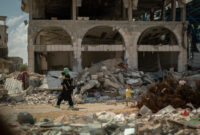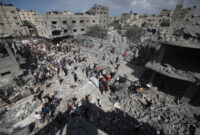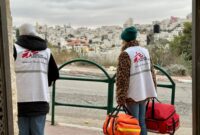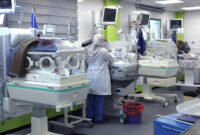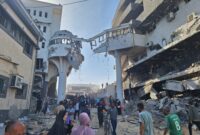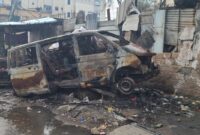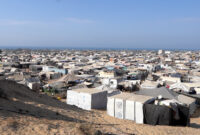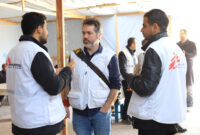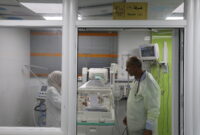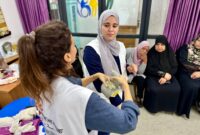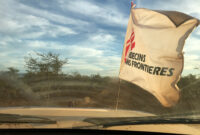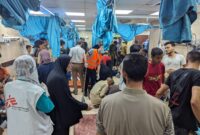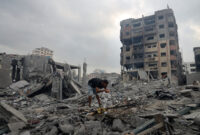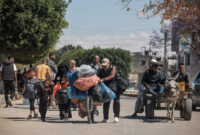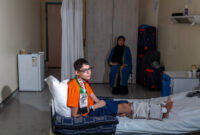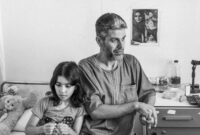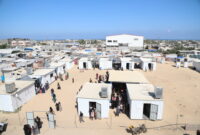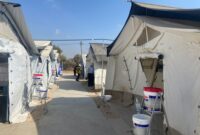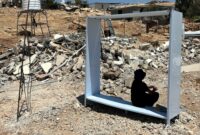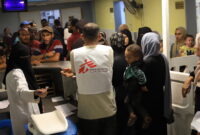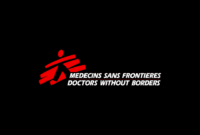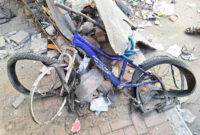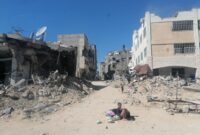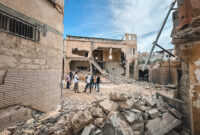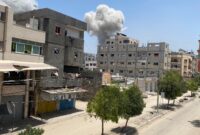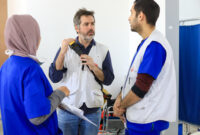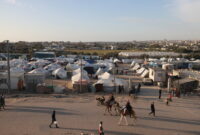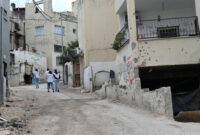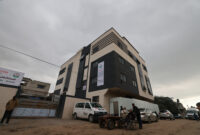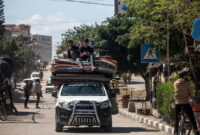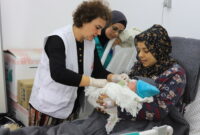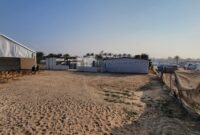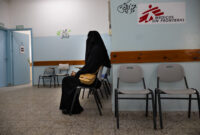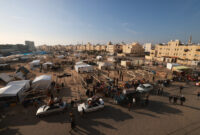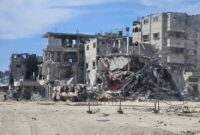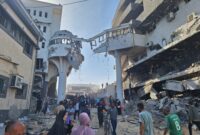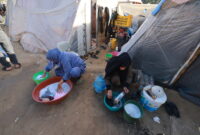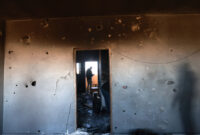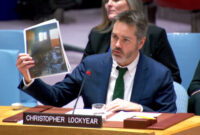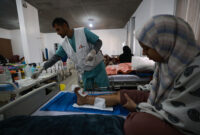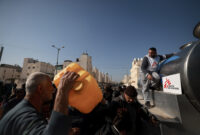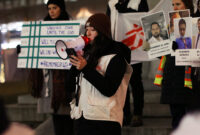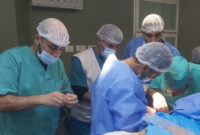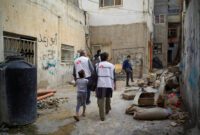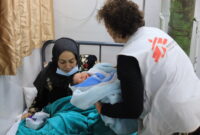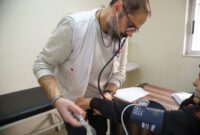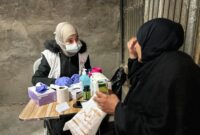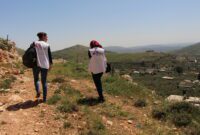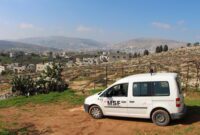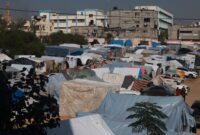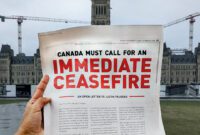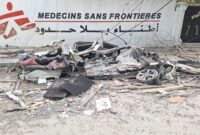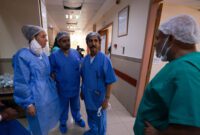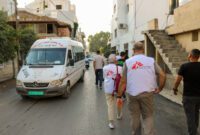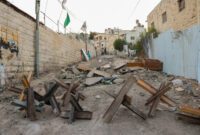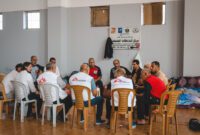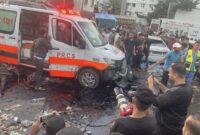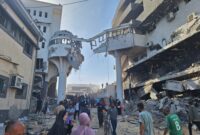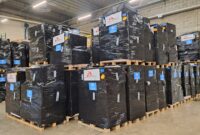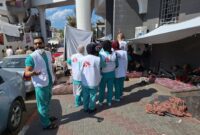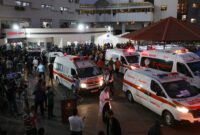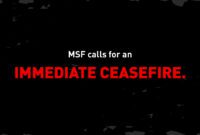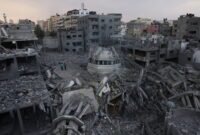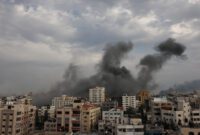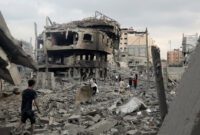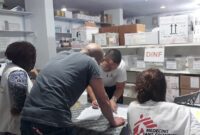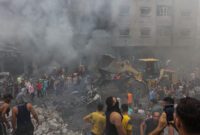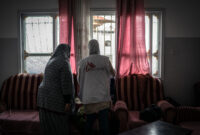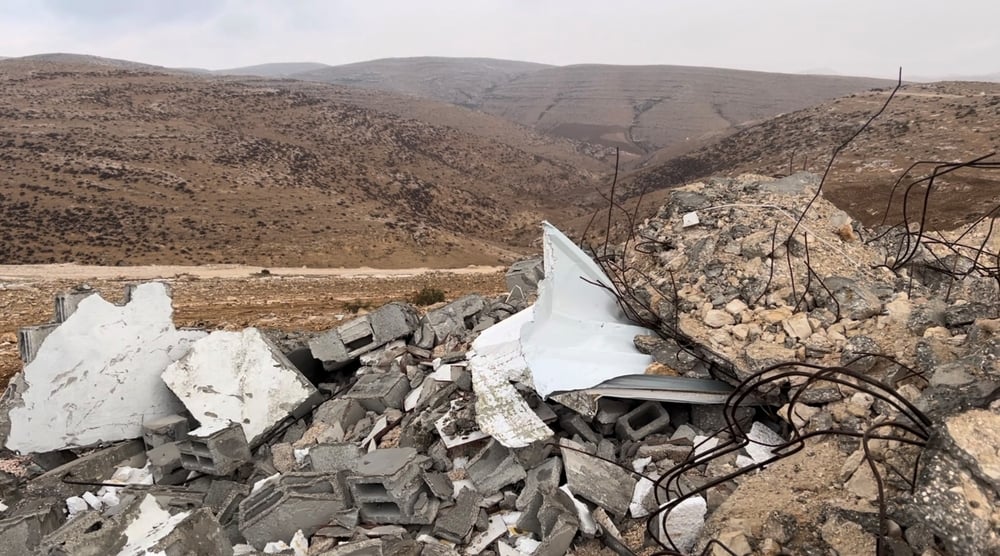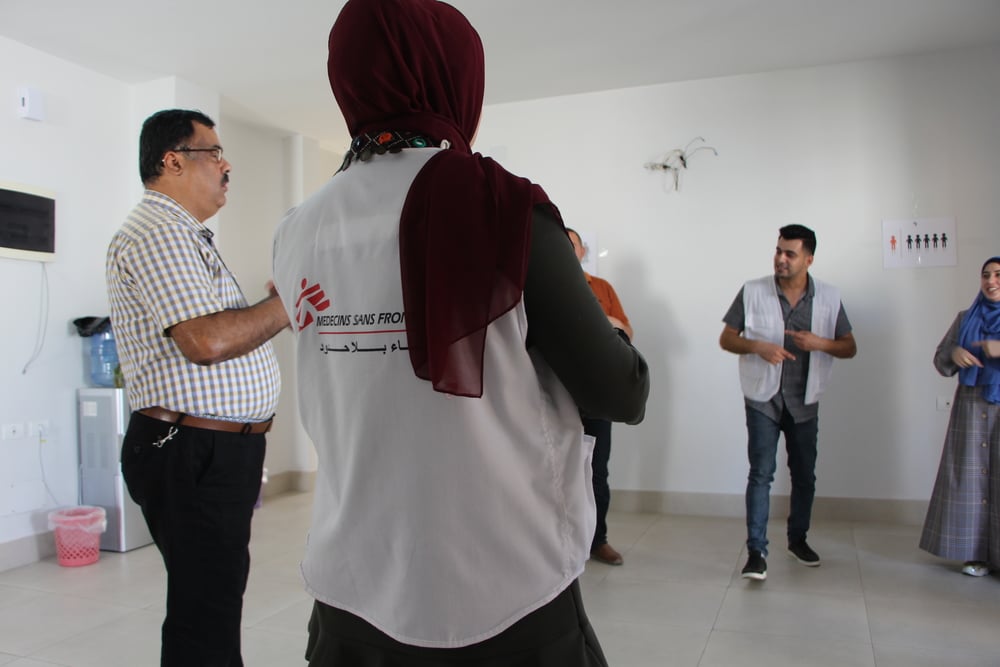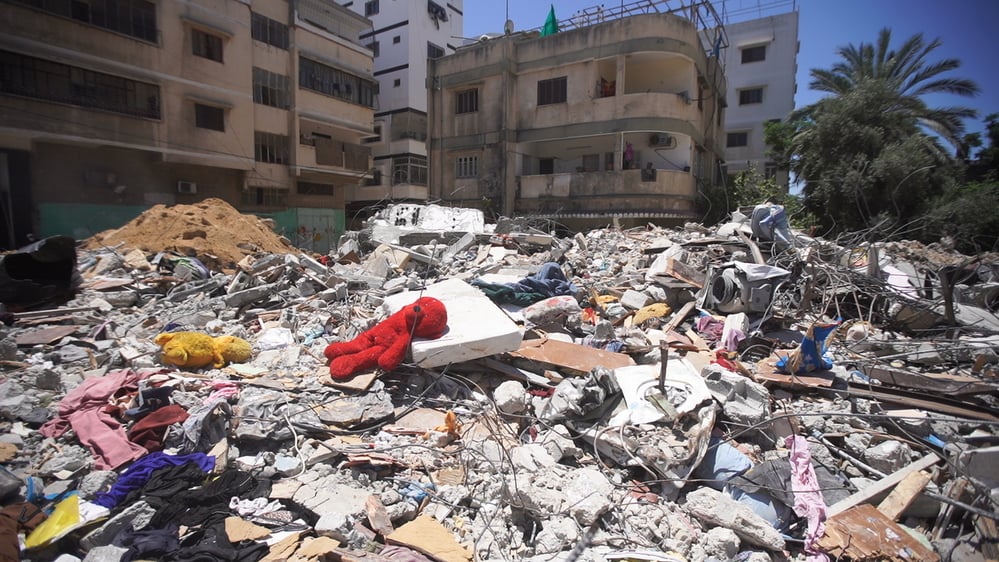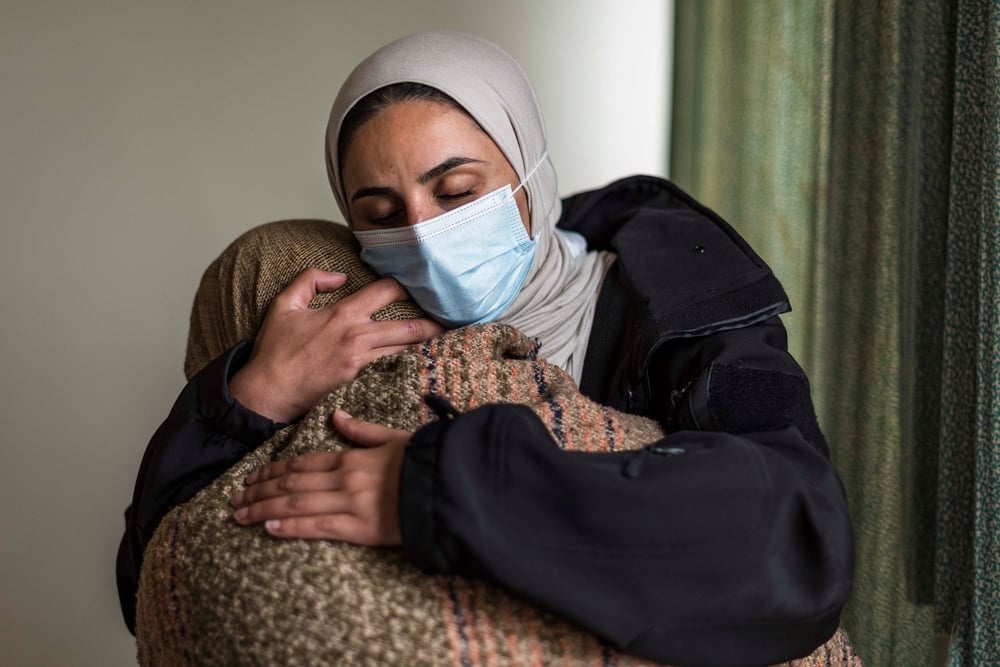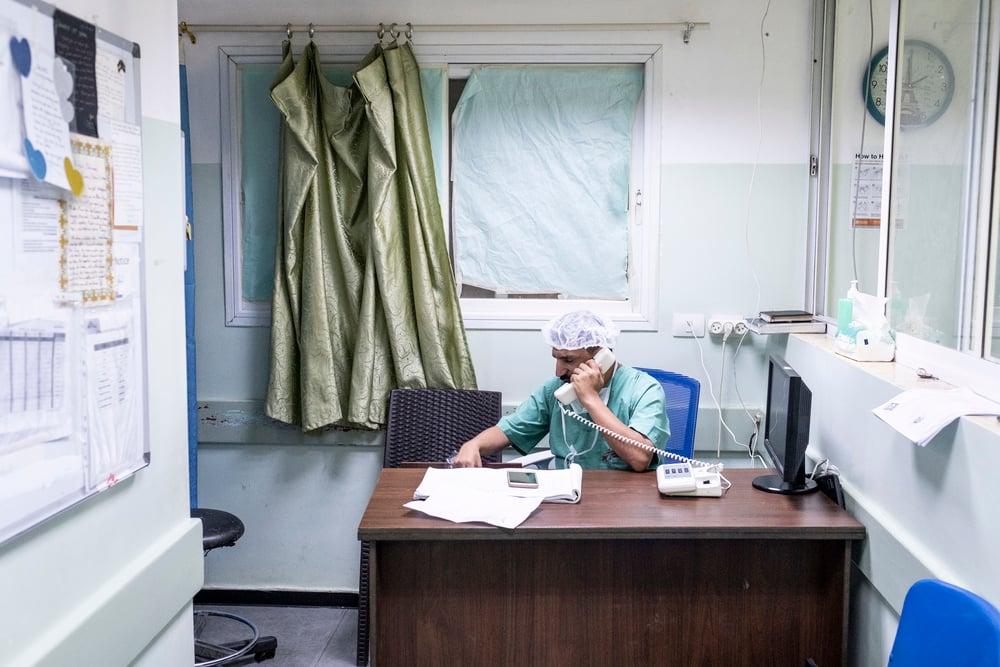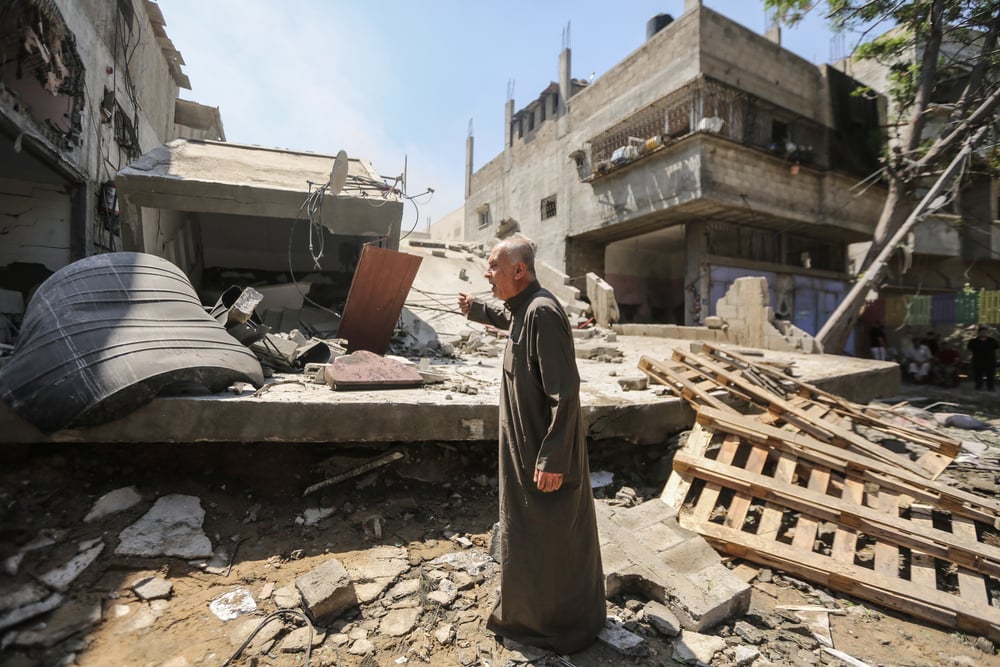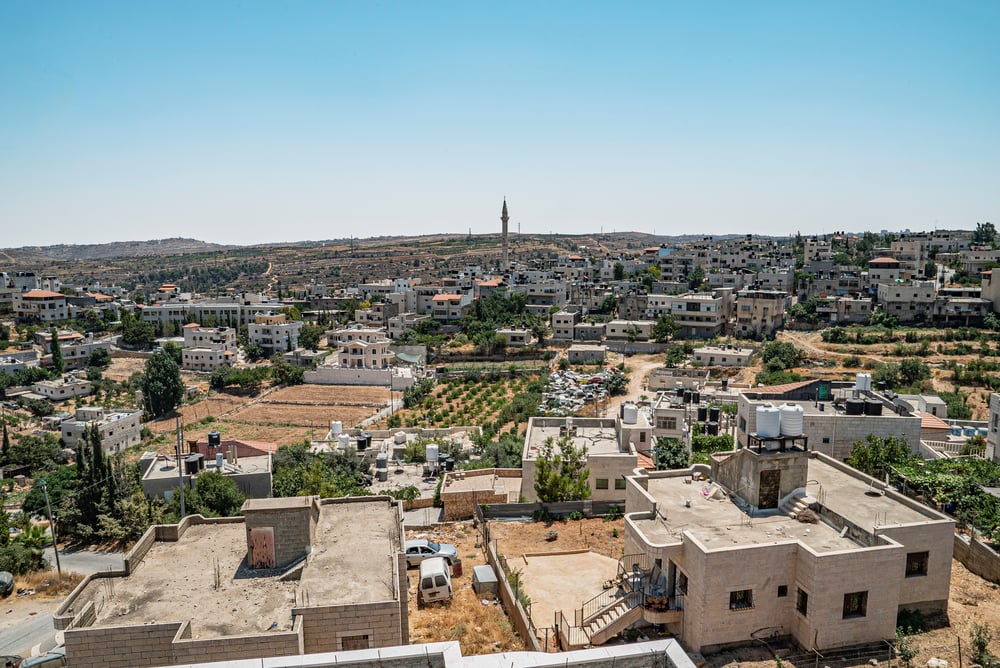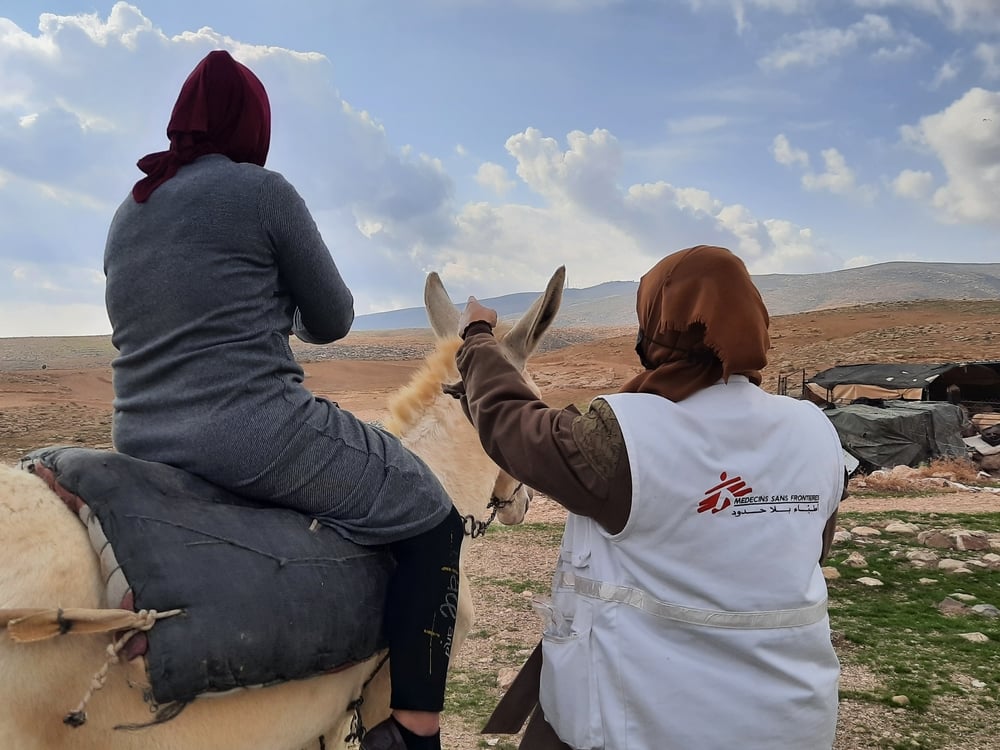Four direct MSF experiences that make us deeply concerned about the nutrition crisis in Gaza
Doctors Without Borders/ Médecins Sans Frontières (MSF) is deeply concerned about reports from the World Health Organization (WHO) and the United Nations World Food Programme (WFP) about the catastrophic levels of hunger experienced by people in Gaza, particularly in the north. While MSF’s presence in northern Gaza is limited, our direct clinical experience in Rafah and testimonies from our Palestinian colleagues give us grave concern about severely limited access to basic food, water and other essential supplies.
Here are four direct MSF experiences in Gaza that highlight why the international community must be gravely concerned about a growing nutrition crisis in this context.
1. MSF colleagues in northern Gaza describe extreme food shortages, cut off from assistance
In February, MSF staff in northern Gaza conveyed to our teams that they did not have enough food to eat, and that they were resorting to pet food to survive. They also reported the lack of water and its overall poor quality, leading to diseases.
Israa Ali, an MSF interpreter based in Jabalia, north Gaza, shared how war and food scarcity is now placing an unbearable psychological toll on her family: “My child [says]…’Mum, I am hungry, I want to have breakfast.’ While making the breakfast with the bare minimum of supplies, I start to blame myself for having children and bringing them into a world with such dire conditions and frequent wars – especially this miserable war.”
This unbearable food situation is the disastrous result of the string of unconscionable decisions taken by Israeli authorities while waging this war: a relentless bombing and shelling campaign, a complete siege imposed on the northern enclave, the bureaucratic hurdles and lack of security mechanisms to ensure safe food distribution. At the same time, the systematic destruction of livelihood capacities such as farming, herding and fishing further force people to survive on the miniscule amounts of food aid that barely trickles into the north.
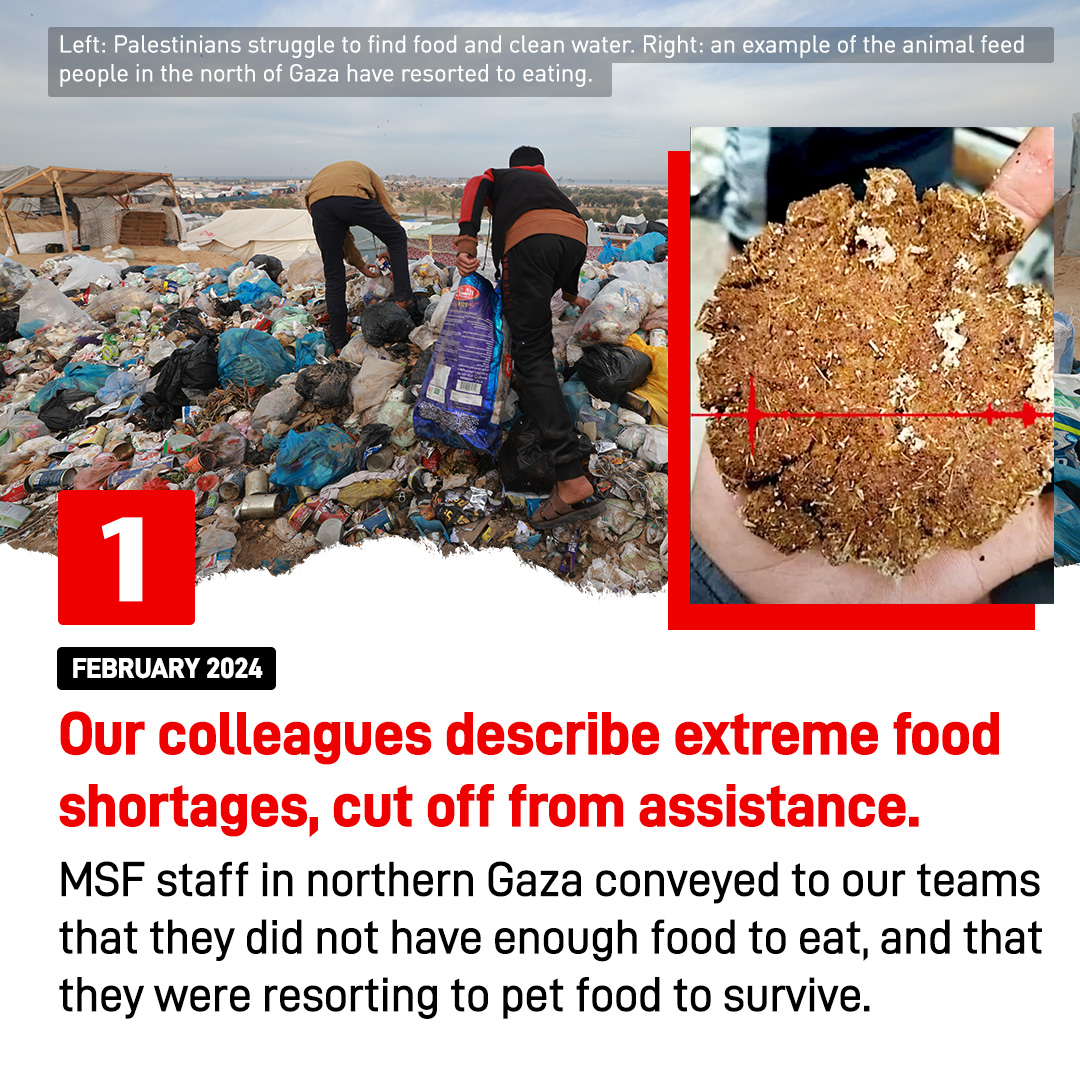
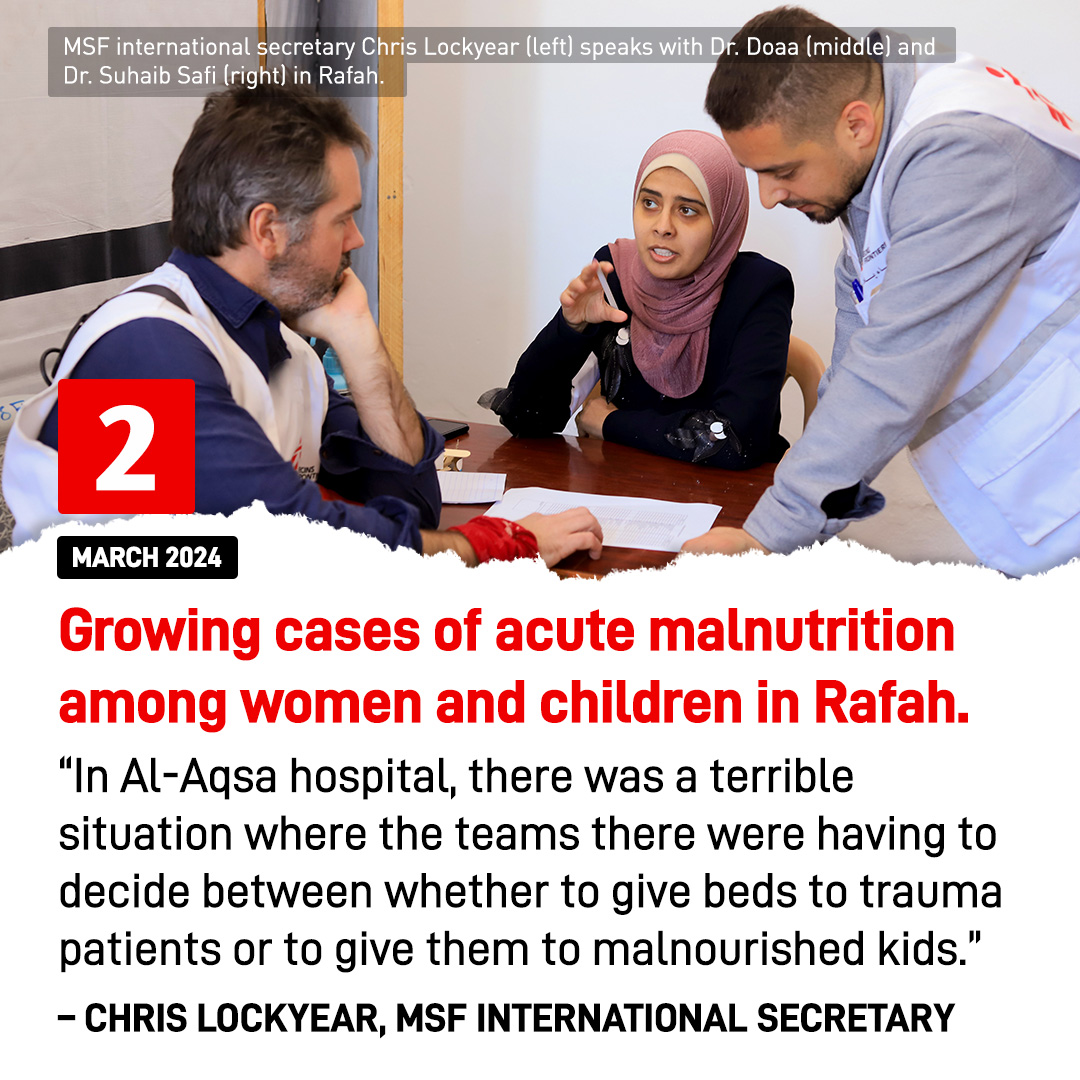
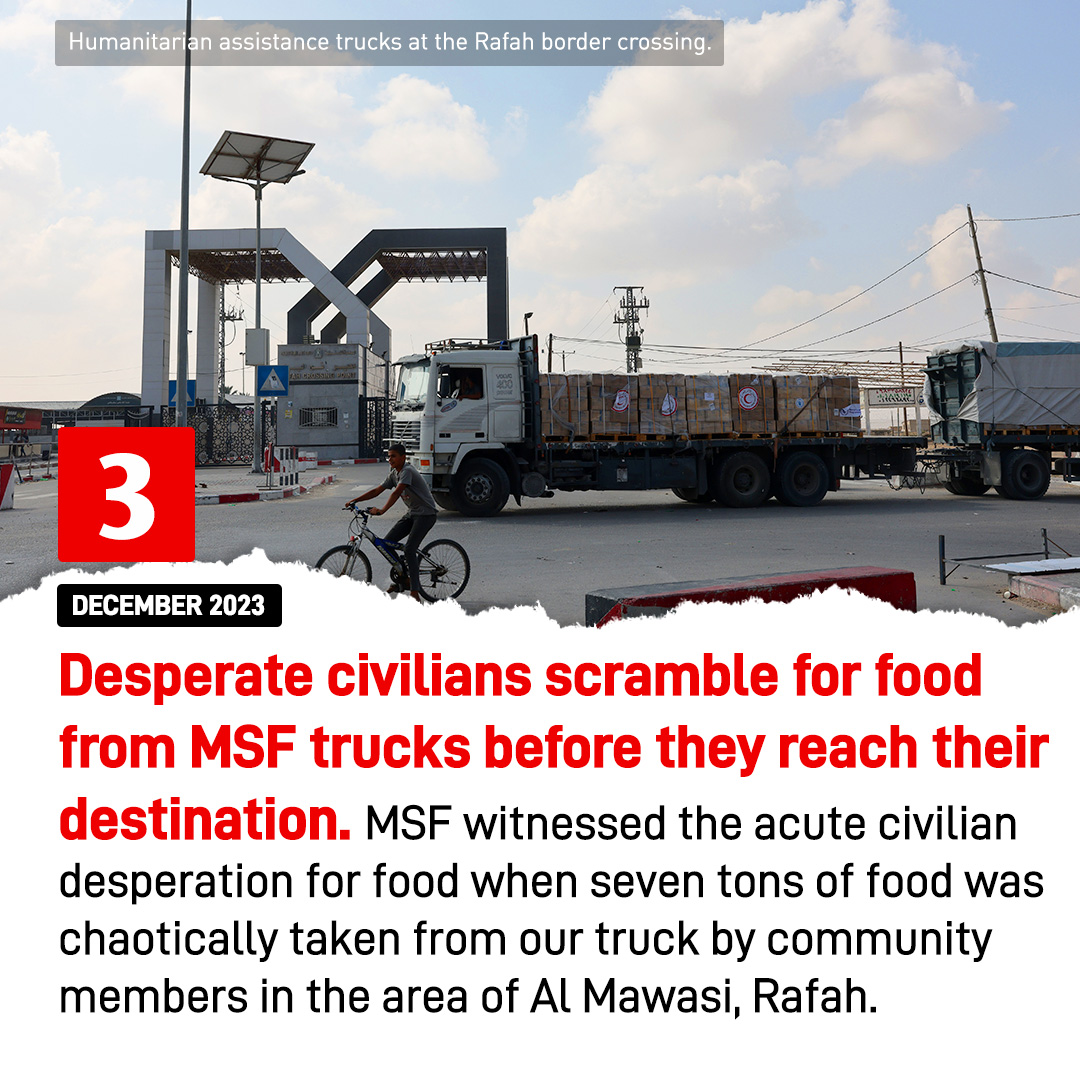
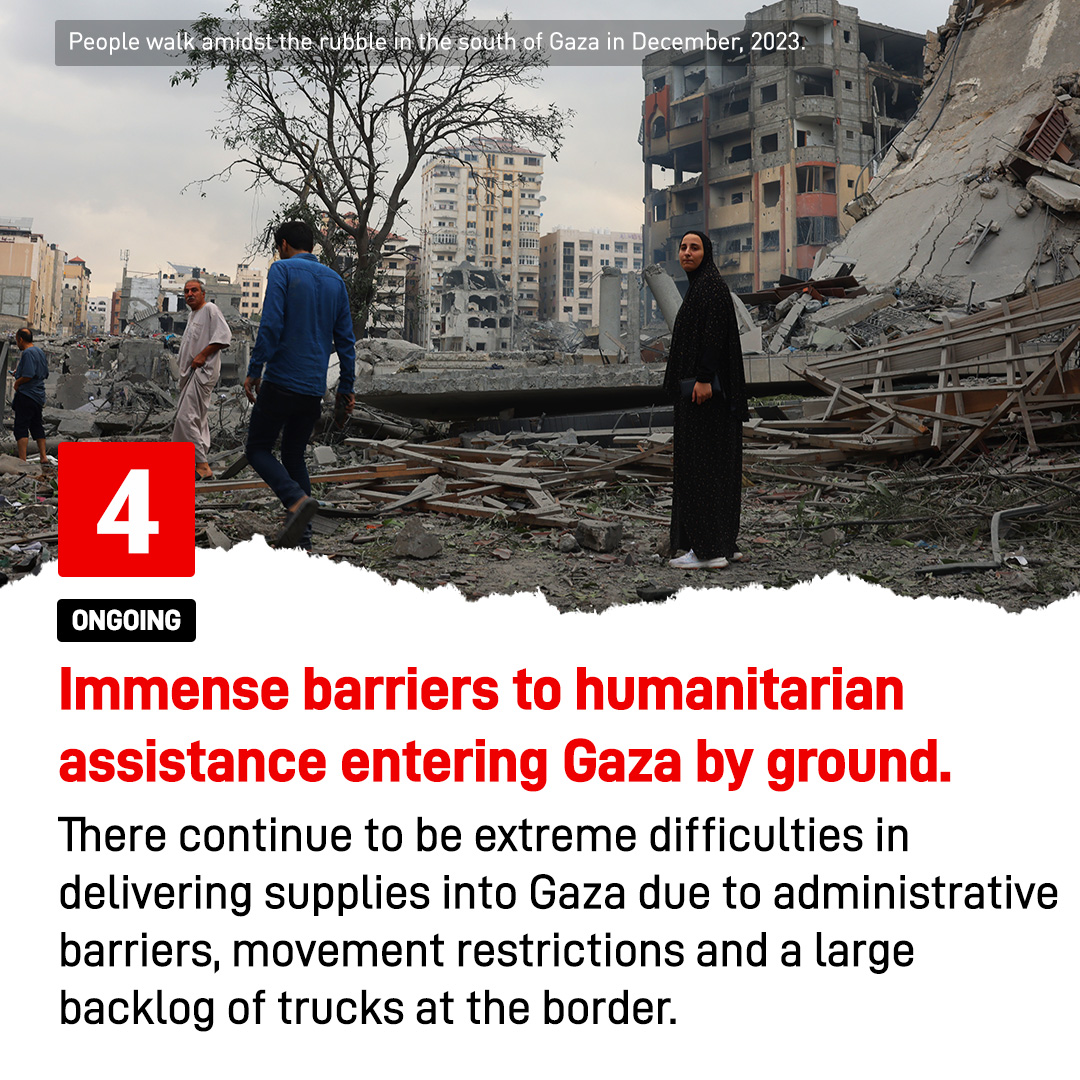
2. Growing cases of acute malnutrition among women and children at MSF-supported healthcare facilities in Rafah
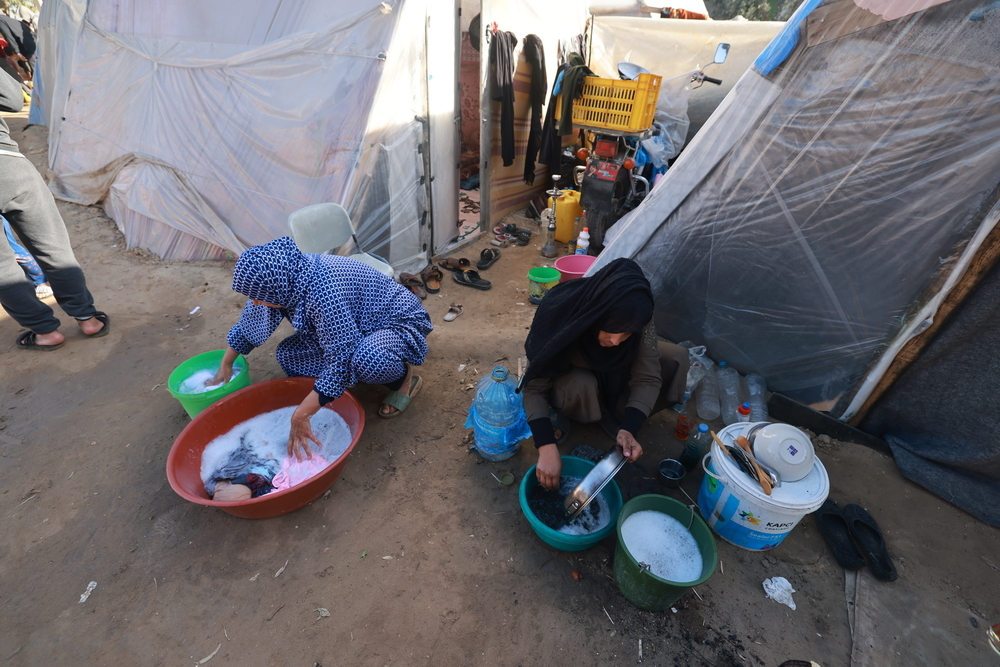
“What we see in the south of Gaza is rising malnutrition rates. The primary healthcare centre in Al-Mawasi that I visited just as I arrived was at 70 patients in its outpatient feeding programme. And those numbers are rising day by day,” said Chris Lockyear, MSF International Secretary during his visit to Gaza in March 2024. “In Al-Aqsa hospital, there was a terrible situation where the teams there were having to decide between whether to give beds to trauma patients or to give them to malnourished kids. We’re seeing the numbers go up and it’s extremely worrying and alarming, especially when you see that bringing food into Gaza is extremely, extremely complicated.”
Over the past months, MSF began screening women and children for malnutrition in the healthcare facilities we support in Rafah. Between January and February, we screened 47 cases of moderate acute malnutrition and 16 cases of severe acute malnutrition among children under five years old. Sophia Pineiro, MSF’s nurse activity manager in Rafah, describes that malnutrition trends are getting “higher every week.”
We know that this data is only a very small part of the larger reality: many people in Gaza do not have access to MSF’s screening services, and many others live in the northern governate of Gaza where no monitoring services are available. The lack of malnutrition screening is a major gap in Gaza’s collapsed health system, especially because many medical practitioners in Gaza do not have first-hand experience of identifying and treating cases of it. This was unthinkable in Gaza before October 2023, demonstrating how a five-month bombing campaign combined with a complete siege on Gaza have dramatically degraded people’s overall health conditions.
3. Desperate civilians scramble for food from MSF trucks before they reach their destination
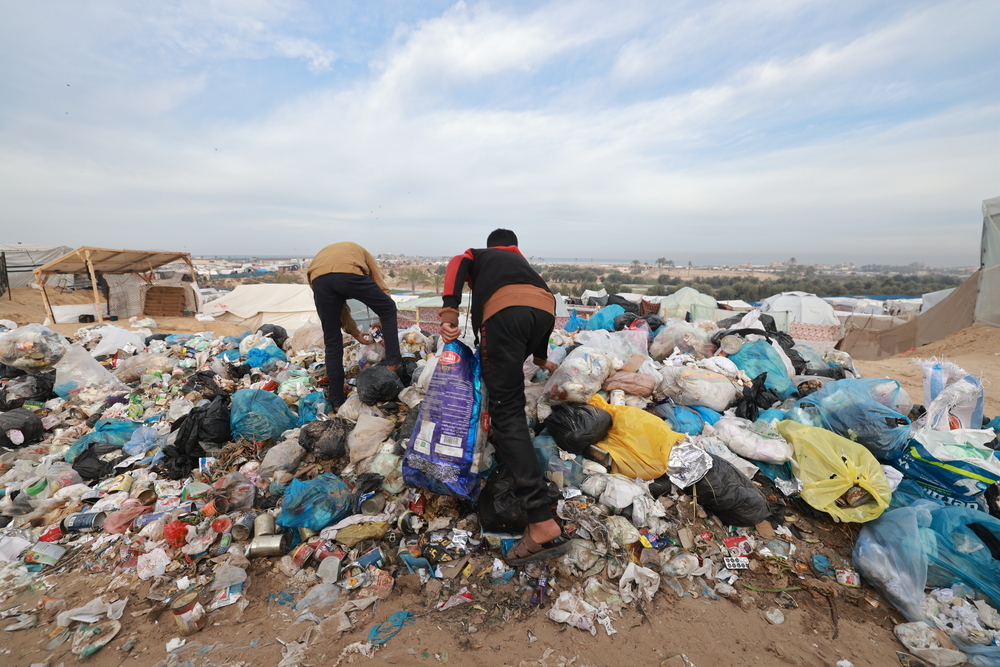
In December 2023, MSF witnessed the acute civilian desperation for food when seven tons of food was chaotically taken from our truck by community members in the area of Al Mawasi, Rafah, in the south of Gaza, before the truck could reach MSF premises. For us, above all, this situation indicated extreme civilian desperation for food – an outcome of persistent food scarcity as well as high food prices. We know that food prices have skyrocketed since October, making it even more difficult for people to buy the little food that is available. Products like chicken, fuel needed for cooking, cow meat and rice are almost never available.
It is unthinkable that civilians have been pushed to such desperate levels of hunger that they are forced to take food from trucks before they are able to reach their intended destination – in this case, our truck carrying emergency food for MSF staff. This experience is a sad reminder of difficult the situation is and how critically Gaza needs a much larger flow of essential items and humanitarian supplies.
4. MSF experiences continued, immense barriers to humanitarian assistance entering Gaza by ground
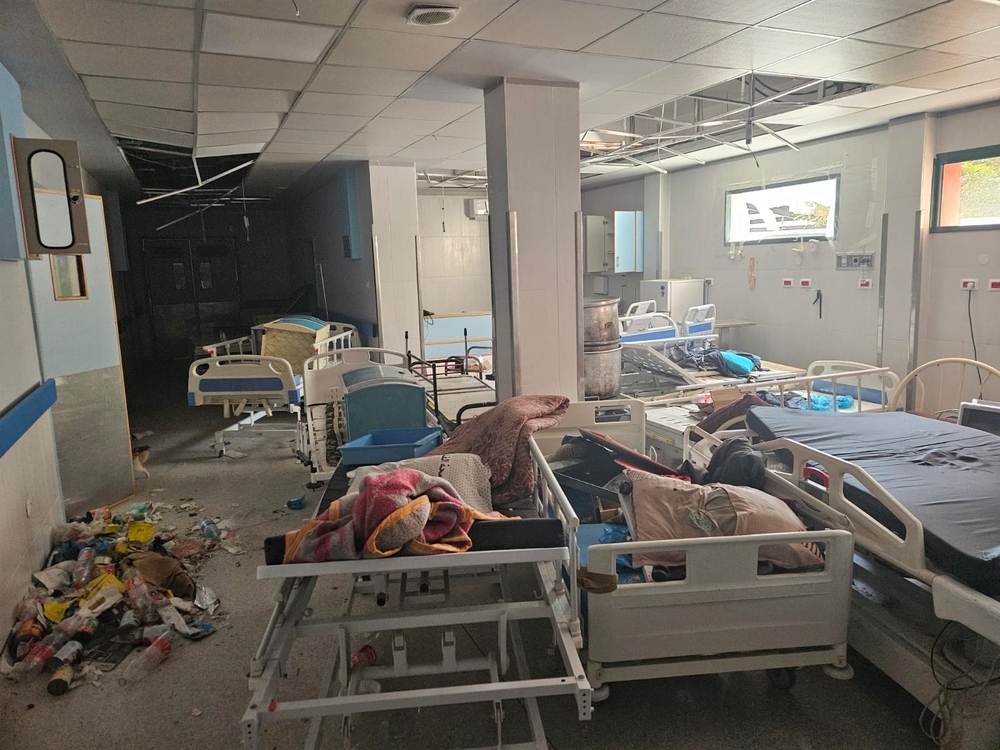
There continue to be extreme difficulties in delivering supplies into Gaza due to administrative barriers, movement restrictions and a large backlog of trucks at the border. In particular, MSF has had very limited access to northern Gaza where we could deliver only paltry amounts of fuel and medical supplies to some of the health facilities we previously supported, including Al Awda and Al Shifa Hospital.
MSF has repeatedly called for Israeli authorities to lift the inhumane siege and allow substantial humanitarian assistance to enter Gaza in a safe and unhindered way. Humanitarian assistance is unconditional by definition and should be allowed, and delivered, only on the basis of needs alone.
Allowing the passage of assistance through the existing land borders is by far the most effective way to ensure it reaches people in need. Alternative efforts to bring in food aid – via airdrops or by maritime delivery, for example – can in no way replace the steady ground flow of assistance required to meet immense needs. We’ve already seen how distributing assistance via airdrops can increase the risks of people who need it, especially in situations of war and chaos: on March 8, five people were killed and 10 injured in Gaza when they were hit by a pallet of relief items including food after a parachute attached to the pallet failed to open properly.
Based on these experiences, MSF reaffirms what our colleagues at the WHO and UN have been saying loudly over the past several weeks: the risk of widespread malnutrition in Gaza is real. Based on our direct medical experience and colleague testimonies, we know that all the factors are present: shortage of food, lack of essential supplies, squalid living conditions and lack of access to proper healthcare. Pregnant women, lactating mothers, young children and elderly people are especially at risk.
We continue to call for an immediate and sustained ceasefire in Gaza.
